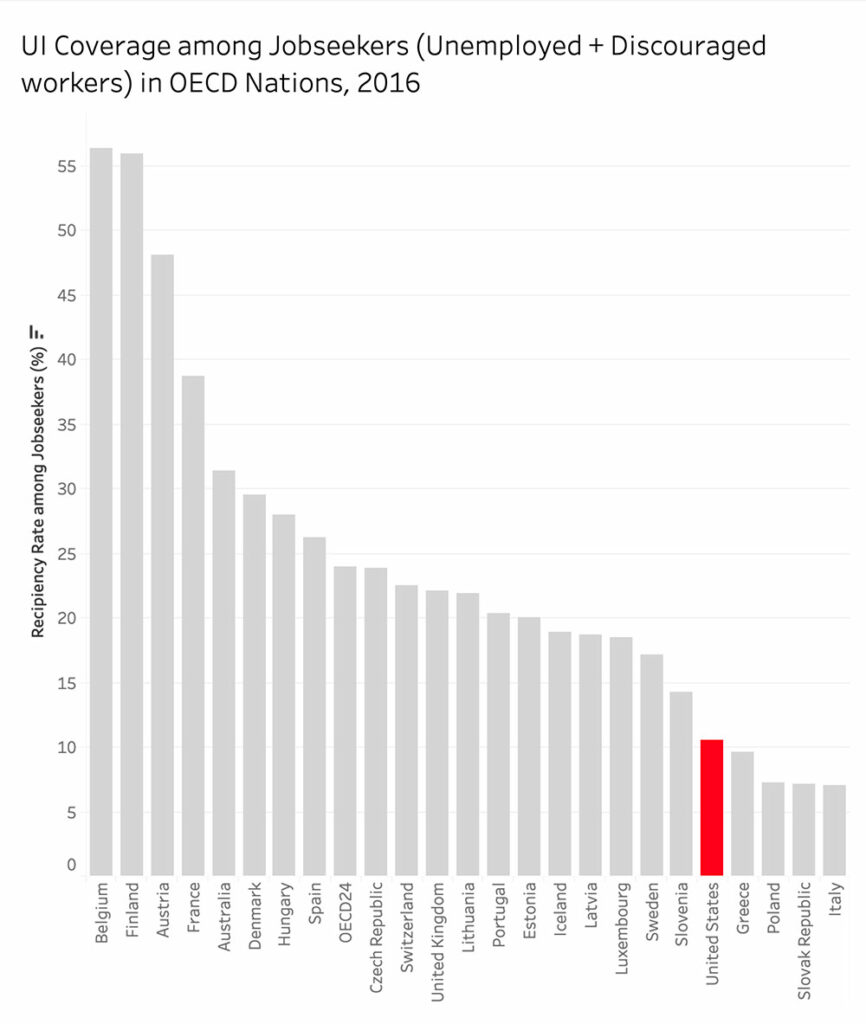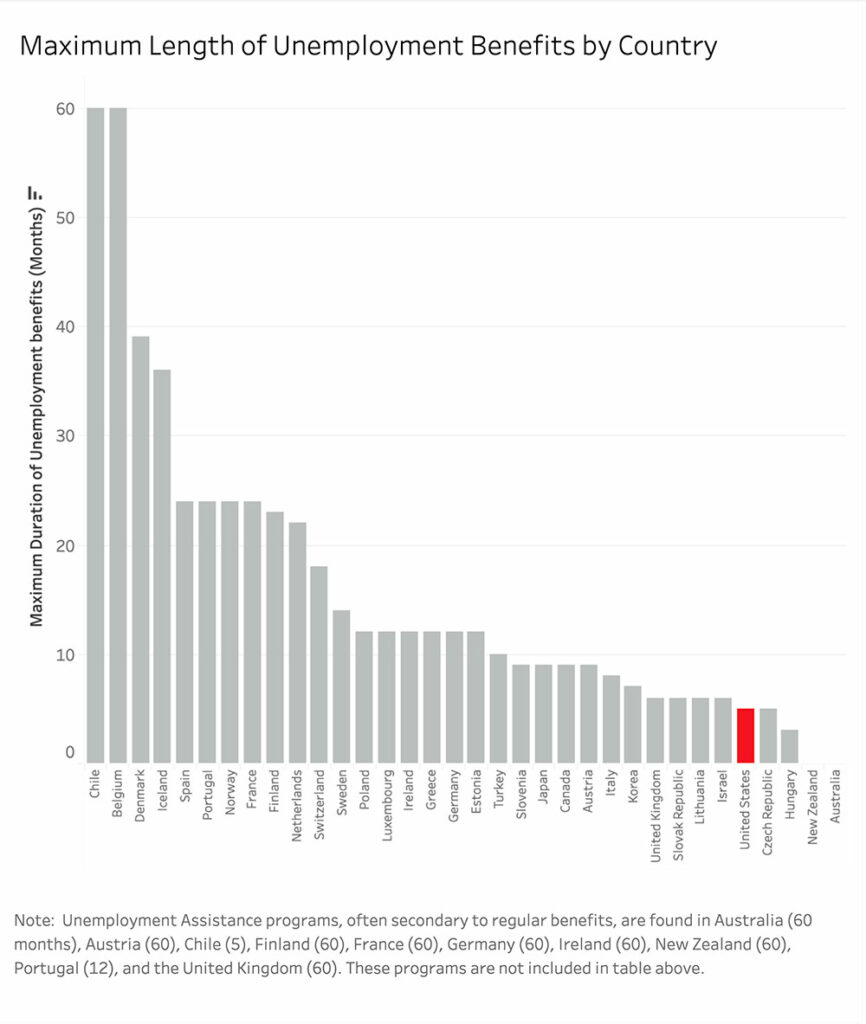Unemployment Insurance
Unemployment insurance has taken on great importance as more than 50 million people have lost work and job losses continue to be highly concentrated among people in low-income households. There are also large racial and ethnic disparities in job loss during the pandemic. CUSP documents several characteristics of unemployment insurance in each state, including amount, duration, base period, and activation of Extended Benefits. As journalists have documented, most people who lose work do not receive unemployment insurance, and exclusions from unemployment insurance disproportionately affect people of color. Furthermore, states have struggled to distribute unemployment insurance to those who qualify. When people do receive unemployment insurance, the amount is often not enough for them to have food and housing security. The duration of unemployment insurance benefits in the US is among the shortest among countries in the Organization for Economic Cooperation and Development, while covering fewer people and with lower amounts. Documenting and learning from how unemployment insurance may be improved during the COVID-19 unemployment crisis can improve it for those urgently in need now and in the future.
Research
Most people who lose work don’t receive unemployment insurance. Policies to support people experiencing economic precarity as a result of job loss may improve mental health outcomes and food security. CUSP researchers found that the reception of unemployment insurance was associated with a 35% relative decline in food insecurity and a 48% relative decline in eating less due to financial constraints among those who lost employment during the pandemic. Greater unemployment insurance amounts were associated with larger reductions in food insecurity. Notably, when the federal government added an additional $600 to benefit checks, this was not associated with declines in employment. These findings provide evidence that expanding unemployment insurance permanently would be a net positive for workers. Without the federal pandemic unemployment insurance expansions made this past year, millions more people would have suffered from food insecurity this year.
Stories
Most unemployed people still do not receive benefits. For those that do, benefits received are often too small, last for too little time, and can be received after lengthy delays. This collection of reporting has helped shed light on issues that unemployed workers have faced for years. Policymakers are considering serious overhauls of unemployment systems as a result.
In most states, despite many needing unemployment insurance payments immediately, unemployed residents often had to wait weeks to months before receiving their benefits. Pew staff writer Tim Henderson tells the story of a former restaurant manager who lost her job because of the pandemic. She shares that, “Just the basic unemployment, $345 a week, would have made a big difference.”
When Congress passed the CARES Act, the $600 added to each unemployment payment resulted in benefits replacing much more of prior wages. When it expired, recipients began receiving often less than half of their prior earnings, making it much harder to get by. Greg Iacurci at CNBC heard the stories of several unemployment benefits recipients, including Artavia Milliam of New York. Artavia explains, “It’s hard when you’re already living your life on bare bones.”
With a return to pre-existing unemployment benefit levels, jobless Americans face increased difficulties with affording necessities like food. Aimee Picchi reports for CBS News in the words of a young woman who is unemployed and facing a drop in benefits: “I would not be able to afford rent, my student loans, utilities and everyday expenses like food.”
As states struggled to process unemployment claims, those waiting for their benefits were facing a number of hardships, including eviction. Stella Tan and the New York Times interviewed a woman living in a suburb of Atlanta about her experiences facing eviction. She expressed, “I don’t like the feeling of maybe we’re one day closer to homelessness.”
Related
- Senate Unemployment Insurance Proposal Needs Improvement · People's Policy Project · October 4, 2021 · CUSP Team Publications
- America's unemployment system is broken. With millions of workers still without jobs, it's time to finally fix it. · Business Insider · September 25, 2021 · CUSP Team Publications
- Expanding State Extended Unemployment Benefits Could Protect 395,000 New Yorkers, But the Legislature Must Act Now · Gotham Gazette · August 20, 2021 · CUSP Team Publications
- Congress and Biden Must Extend Unemployment Benefits · People's Policy Project · July 28, 2021 · CUSP Team Publications
- Stronger Unemployment Benefits Are a Pandemic Success Story · People's Policy Project · June 28, 2021 · CUSP Team Publications
- view all


